Understanding Content Marketing Basics for Success


Content marketing sounds like another buzzword, but it actually powers the brands you trust every day. Here is a surprise: 70 percent of consumers say they prefer getting to know a company through articles instead of ads. You might think people would rather skip branded content, yet they are hungry for useful info from companies that feel real and helpful.
Table of Contents
- Defining Content Marketing: What It Is And Its Core Elements
- The Importance Of Content Marketing: Why It Matters In Today's Digital World
- How Content Marketing Works: The Process Of Creating And Distributing Value
- Key Concepts In Content Marketing: Strategies, Audience Engagement, And Metrics
Quick Summary
| Takeaway | Explanation |
|---|---|
| Content marketing builds trust and relationships | It focuses on providing valuable content to engage audiences instead of direct selling. |
| Understanding your audience is crucial | Deep research into audience needs leads to more effective content that resonates with them. |
| Diverse content formats enhance engagement | Using blogs, videos, and social media helps reach broader audiences and cater to different preferences. |
| Strategic planning drives success | A well-defined content calendar aligned with audience interests ensures consistency and relevance. |
| Measure performance for continual improvement | Tracking engagement metrics helps refine content strategies and improve audience connection over time. |
Defining Content Marketing: What It Is and Its Core Elements
Content marketing represents a strategic approach to creating and distributing valuable, relevant, and consistent content to attract and retain a clearly defined audience. Unlike traditional advertising that directly promotes products, content marketing focuses on building trust, providing genuine value, and establishing long term relationships with potential customers.
The Foundational Purpose of Content Marketing
At its core, content marketing aims to solve problems and answer questions for your target audience. Research from Content Marketing Institute indicates that successful content marketing transforms brands from mere product sellers into trusted resources and thought leaders within their industry. By delivering high quality information that addresses audience needs, businesses can naturally draw potential customers toward their solutions.
To help clarify the differences between traditional advertising and content marketing, here is a side-by-side comparison based on the article content.
| Aspect | Traditional Advertising | Content Marketing |
|---|---|---|
| Primary Goal | Promote products/services directly | Build trust and provide value |
| Approach | Direct sales pitch | Educational, informative, helpful content |
| Audience Engagement | Passive viewers | Active, engaged audience |
| Communication Style | Transaction-focused | Relationship and trust-focused |
| Longevity | Short-term campaigns | Ongoing, long-term relationships |
| Perceived Value by Audience | Often seen as intrusive or ignorable | Viewed as useful, relevant, and credible |
Key Components of Effective Content Marketing
Successful content marketing strategies typically involve several critical elements:
- Audience Understanding: Deeply researching and defining your target demographic
- Strategic Content Planning: Creating a consistent content calendar aligned with audience interests
- Diverse Content Formats: Developing content across multiple channels like blogs, videos, podcasts, and social media
- Value Driven Approach: Prioritizing educational and informative content over direct sales pitches
The ultimate goal is to create content that resonates with your audience, addresses their specific challenges, and positions your brand as a credible and helpful resource. By consistently delivering meaningful content, businesses can build stronger connections, increase brand awareness, and ultimately drive profitable customer actions.
The Importance of Content Marketing: Why It Matters in Today's Digital World
In the rapidly evolving digital landscape, content marketing has become an essential strategy for businesses seeking meaningful connections with their audience. Far beyond traditional advertising, content marketing represents a powerful approach to building brand credibility, trust, and long-term customer relationships.
Driving Business Growth Through Strategic Communication
Research from Coursera reveals that content marketing is crucial for creating genuine engagement and delivering substantial value to target audiences. By providing informative, relevant content, businesses can position themselves as industry experts and thought leaders. This strategic communication approach helps companies stand out in crowded markets, transforming passive viewers into active, engaged customers.Key Benefits of Strategic Content Marketing
Businesses leveraging content marketing can experience multiple significant advantages:

- Enhanced Brand Visibility: Consistently producing high-quality content increases online presence and search engine rankings
- Customer Trust Building: Demonstrating expertise through valuable information establishes credibility and authority
- Cost-Effective Marketing: Compared to traditional advertising, content marketing offers superior return on investment
- Long-Term Audience Engagement: Creating content that genuinely helps and informs builds lasting customer relationships
Successful content marketing goes beyond selling products. It focuses on understanding audience needs, providing solutions, and creating meaningful interactions that naturally guide potential customers through their decision-making journey.
The following table summarizes the key benefits businesses can achieve through strategic content marketing, helping readers quickly see the distinct advantages outlined in this section.
| Benefit | Description |
|---|---|
| Enhanced Brand Visibility | High-quality content boosts online presence and improves search engine rankings |
| Customer Trust Building | Consistent value and expertise establish strong credibility and authority |
| Cost-Effective Marketing | Delivers better ROI than traditional advertising |
| Long-Term Audience Engagement | Informative content creates lasting relationships with your audience |
| Thought Leadership | Demonstrating industry knowledge positions the brand as a trusted resource |
How Content Marketing Works: The Process of Creating and Distributing Value
Content marketing operates as a strategic ecosystem where businesses transform information into powerful audience engagement tools. Unlike traditional marketing approaches, this process focuses on creating meaningful connections through carefully crafted, valuable content that addresses specific audience needs and interests.
Understanding the Content Creation Cycle
Research from ResearchGate highlights that successful content marketing follows a structured methodology of audience understanding, strategic planning, and targeted distribution. The process begins with deep audience research, identifying their challenges, preferences, and information consumption habits.Core Stages of Content Marketing Strategy
The content marketing workflow encompasses several critical stages that transform raw ideas into compelling audience experiences:
- Audience Research: Identifying target demographic characteristics, pain points, and information needs
- Content Strategy Development: Creating a comprehensive plan mapping content types to audience segments
- Content Creation: Producing high-quality, relevant content across multiple formats and channels
- Distribution and Amplification: Strategically sharing content through appropriate platforms to maximize reach
- Performance Measurement: Analyzing content effectiveness using engagement metrics and audience feedback
Successful content marketing transcends simple information sharing. It requires a nuanced approach of creating genuine value, understanding audience psychology, and developing a consistent narrative that builds trust and positions the brand as a reliable, insightful resource in its industry.
To visualize the steps involved in implementing a content marketing strategy, the table below outlines the core stages described in the article.
| Stage | Description |
|---|---|
| Audience Research | Identify demographics, pain points, and needs of the target audience |
| Content Strategy Development | Map content types to audience segments and plan content accordingly |
| Content Creation | Produce valuable, relevant content for multiple formats and channels |
| Distribution and Amplification | Share content strategically across platforms to maximize reach |
| Performance Measurement | Analyze engagement and feedback to refine and improve strategy |
Key Concepts in Content Marketing: Strategies, Audience Engagement, and Metrics
Content marketing is a sophisticated discipline that combines strategic communication, audience psychology, and data-driven insights. Understanding its fundamental concepts enables businesses to create more targeted, effective content strategies that drive meaningful audience connections and business growth.
Strategic Content Development Frameworks
Research from ResearchGate highlights the importance of developing comprehensive content strategies that go beyond simple information dissemination. Successful approaches involve deep audience understanding, precise content mapping, and sophisticated distribution techniques that align with specific business objectives.Critical Components of Effective Content Marketing
Effective content marketing requires mastering several interconnected elements:
- Audience Segmentation: Precisely defining and understanding different audience groups
- Content Personalization: Tailoring content to specific audience needs and preferences
- Channel Optimization: Selecting and leveraging most appropriate platforms for content distribution
- Engagement Measurement: Tracking meaningful metrics that indicate content performance
The ultimate goal of content marketing is not just to produce content, but to create meaningful interactions that build trust, demonstrate expertise, and guide potential customers through their decision-making journey. By integrating strategic planning, creative storytelling, and data-driven insights, businesses can transform their content from simple information into powerful engagement tools that drive real business results.

Take Your Content Marketing to the Next Level with Automation
Struggling to keep up with creating consistent high-quality content that builds trust for your audience? The article above shows just how critical it is to deliver valuable and relevant information to grow your business. But managing audience research, planning, content production, and distribution all at once can leave you feeling overwhelmed. If you want to stay competitive and see real returns from your content marketing strategy, it's clear you need a smarter solution.
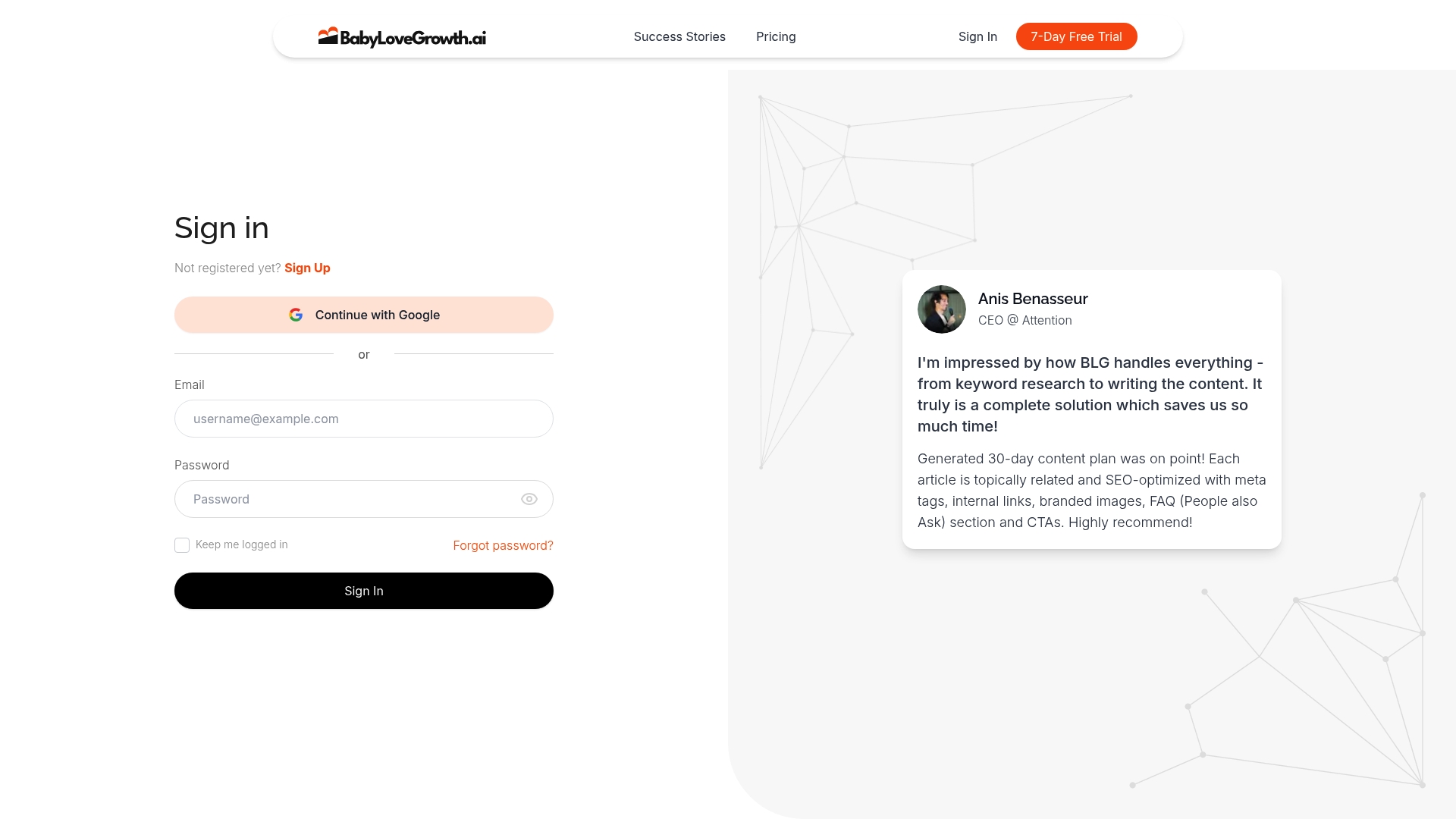
Give your business the advantage with Babylovegrowth.ai. Our AI-driven platform handles the hard work for you. Experience a 30-day custom content plan, fully optimized articles, and powerful backlink exchange. Start your free trial now to boost your rankings, increase engagement, and finally achieve the consistent results your business deserves. Visit Babylovegrowth.ai today and watch your content strategy work on autopilot.
Frequently Asked Questions
What is content marketing?
Content marketing is a strategic approach that involves creating and distributing valuable, relevant content to attract and retain a clearly defined audience, ultimately building trust and long-term relationships.
Why is content marketing important for businesses?
Content marketing is important as it enhances brand visibility, builds customer trust, and offers a cost-effective way to engage audiences, helping businesses position themselves as industry authorities and connect meaningfully with potential customers.
How can I create an effective content marketing strategy?
To create an effective content marketing strategy, deeply research your target audience, develop a content calendar, produce diverse content formats, and prioritize delivering value over direct sales pitches.
What are some key metrics to measure content marketing success?
Key metrics to measure content marketing success include engagement rates, website traffic, lead generation, social sharing, and audience feedback, which help evaluate the effectiveness of your content in achieving business goals.
Recommended
Smart SEO,
Faster Growth!
Most Read Articles
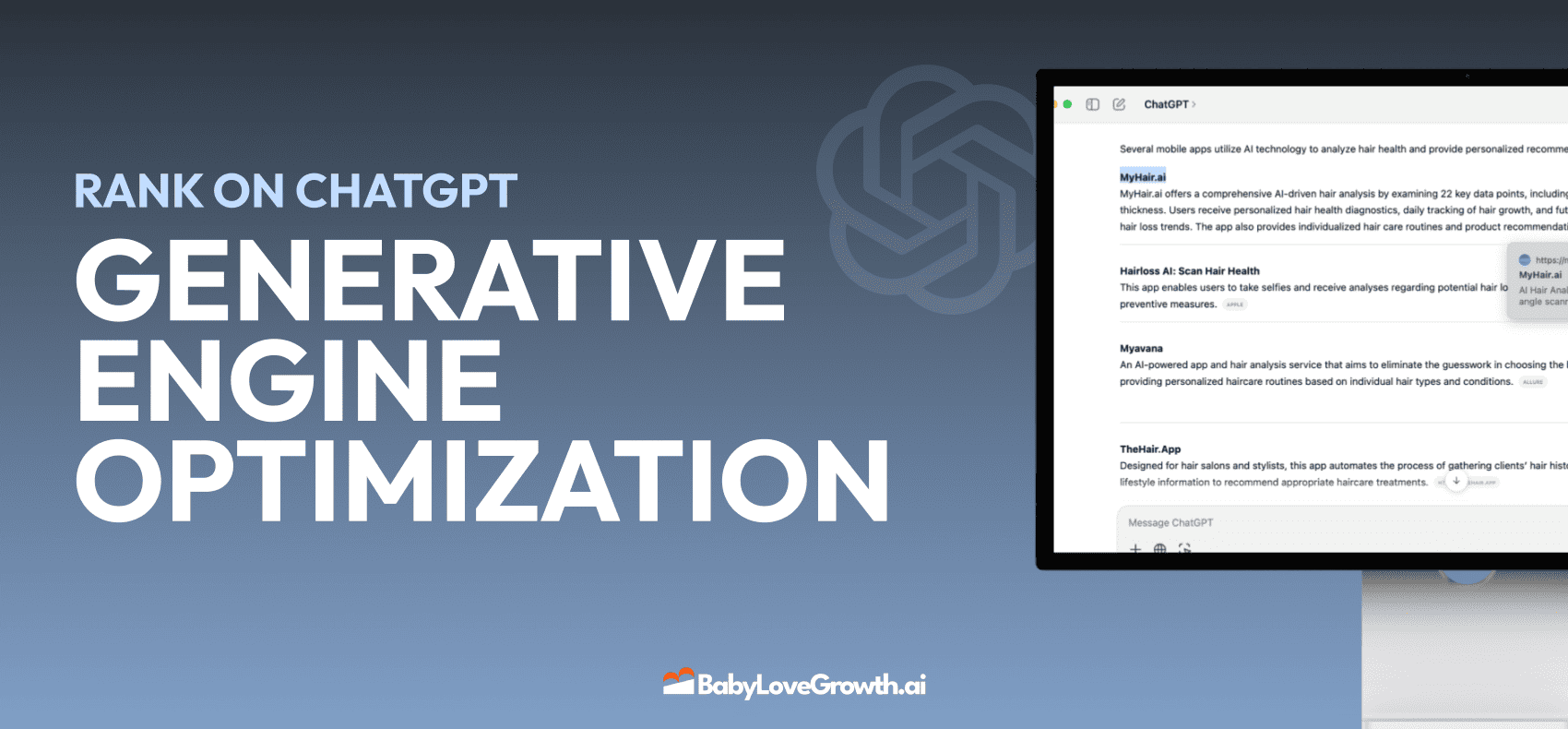
Generative Engine Optimization (GEO)
Learn how Generative Engine Optimization (GEO) helps your content rank in AI search engines like ChatGPT and Google AI. This comprehensive guide explains the differences between SEO and GEO, why it matters for your business, and practical steps to implement GEO strategies for better visibility in AI-generated responses.
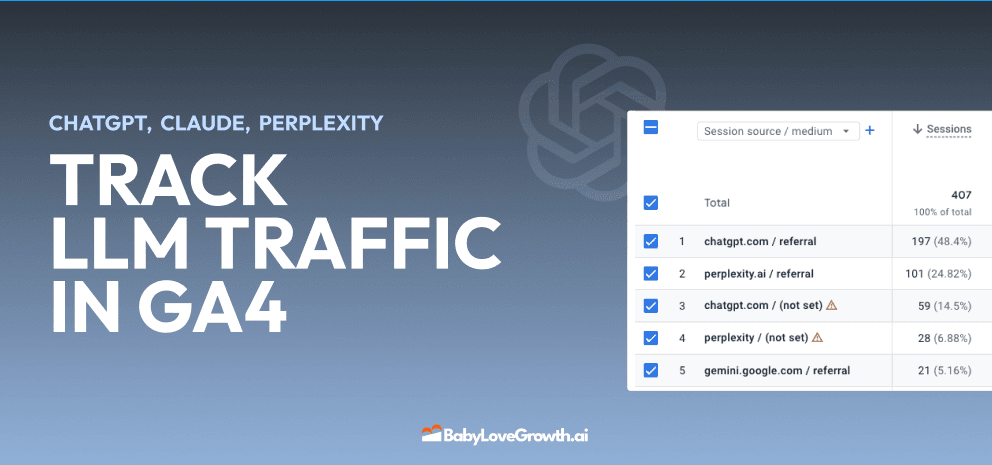
Track LLM Traffic in Google Analytics 4 (GA4)
Learn how to track and analyze traffic from AI sources like ChatGPT, Claude, Perplexity, and Google Gemini in Google Analytics 4. This step-by-step guide shows you how to set up custom filters to monitor AI-driven traffic and make data-driven decisions for your content strategy.
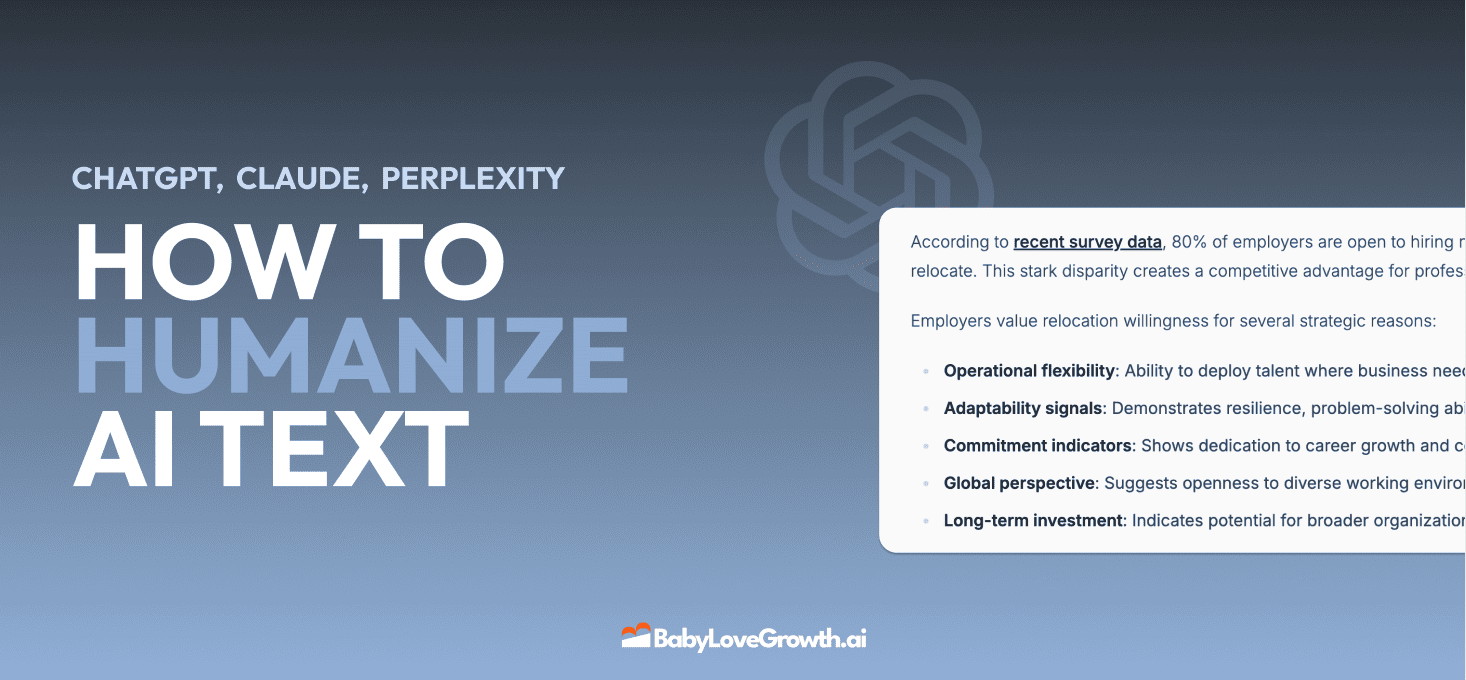
How to Humanize AI Text with Instructions
Learn practical techniques to make AI-generated content sound more natural and human. This guide covers active voice, direct addressing, concise writing, and other proven strategies to transform robotic text into engaging content.
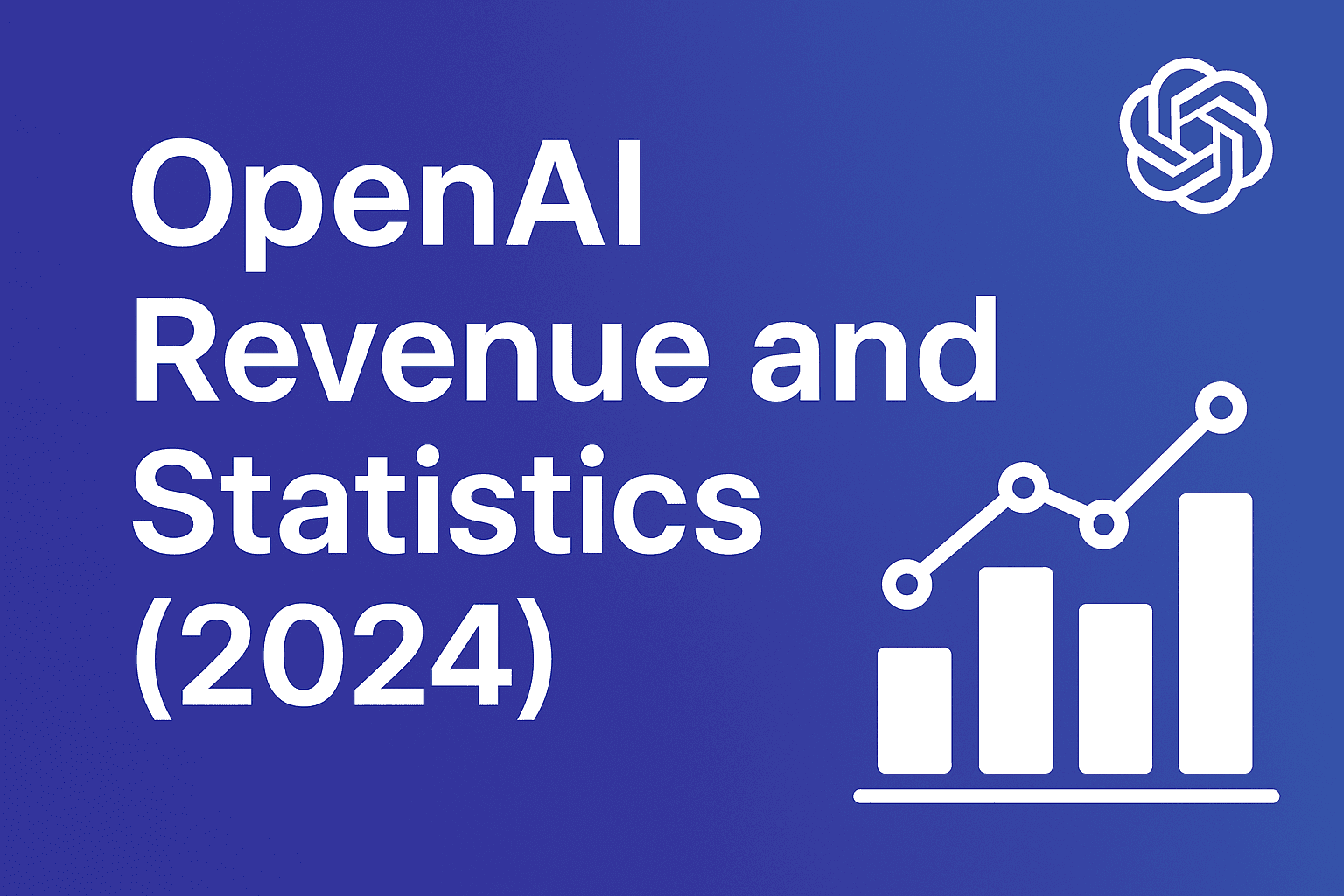
Open AI Revenue and Statistics (2024)
Comprehensive analysis of OpenAI financial performance, user engagement, and market position in 2023. Discover key statistics including $20B valuation, $1B projected revenue, and 100M+ monthly active users.